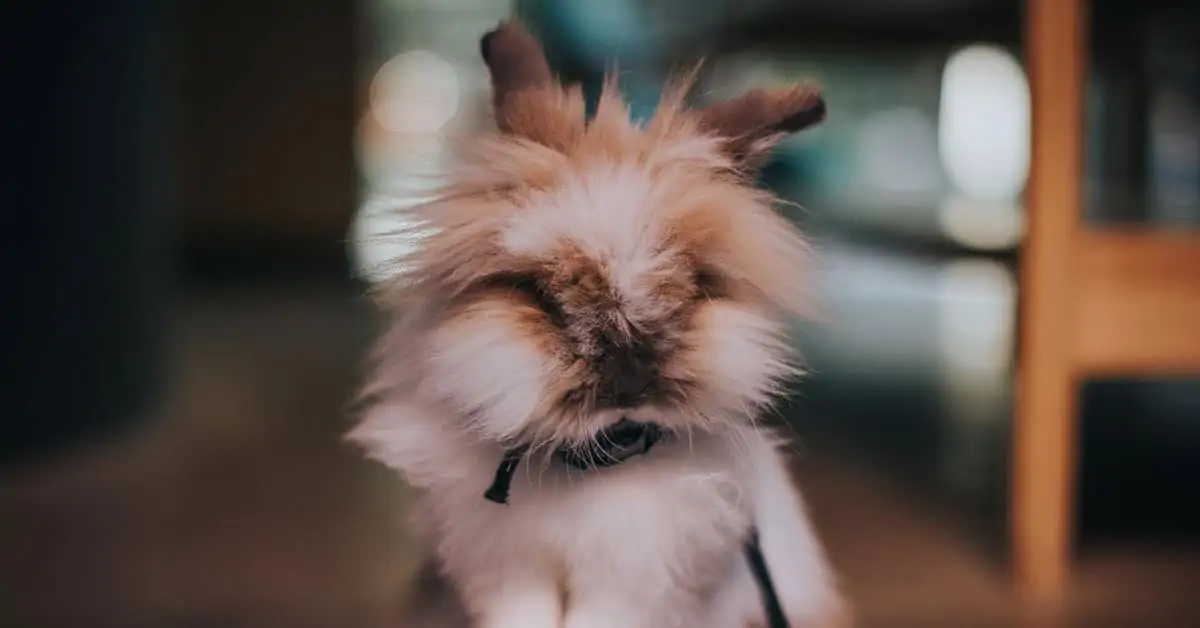Our pet bunnies are part of our families. So, we worry about their safety, comfort, and welfare. We know that in the wild, bunnies are prey and can get scared easily. Having a light on seems to make them feel more secure and lets them be more active.
Bunnies are crepuscular, meaning they’re most active in the dim light of dawn and dusk. Even though leaving a light on isn’t necessary, it may help them feel safer. However, they also need the right balance of light and darkness for healthy living.
Rabbits see better than people when in low light conditions. However, they don’t see as well as people in bright light. They also have an ability to distinguish humans with their voices, scents, physical shapes, and mannerisms. Thus, any strange people or animals walking around in the dark can cause them distress.
Can I Leave My Bunny Alone Overnight?

In the wild, bunnies spend most of their days and nights inside dark burrows. They only come out at dawn and dusk to forage, socialize, and relieve themselves. Thus, if is okay to leave your pet bunny overnight to “burrow” in the dark.
Nonetheless, only leave your bunny alone overnight if you live in a very quiet environment. If you have pets who are natural predators such as dogs, cats, or snakes, your bunny will be restless.
Bunnies can easily get a heart attack when scared. In the wild, they are prey for swooping birds, prowling mammals, and slithering reptiles. Even in the dark, they can sense the movement of other animals and smell their scents. So, if you have other animals in the house, you’ll need to take extra care.
Ensure other animals can’t easily get to the bunny’s hatch. Preferably, have the bunny in a closed room.
Ensure your bunny can’t escape from the said room to other parts of the house. Bunnies love to explore around their home and will venture out into dangerous territory if given the opportunity.
Have a night light on if you live in a noisy area. If there are noises from neighbors, regular footsteps along the corridors, or car noises from the street then your bunny will keep getting startled in the dark. However, they can be calmer and feel safer if they can see there is no predator approaching.
Should I Leave a Light on For My Bunny?
Being crepuscular by nature, bunnies are most active at dawn and at dusk. By leaving a light on, you will be extending their active hours. Thus, they will be more active even during hours when they would be naturally asleep. So, it’s often unnecessary to leave a light on and may even interfere with their growth and development.
However, being natural prey, bunnies can become very scared when they sense strange scents or movements. Bunnies have a resting heart rate of between 140 and 180 beats per minute. When frightened, this already high heart rate can shoot up without warning and result in a fatal heart attack.
Hence, sometimes a night light could assure the bunny that a wind-swept curtain isn’t a predator on the hunt. If you decide to leave a night light on, make sure:
- The light is dim. Bunnies don’t see well in bright light.
- The light is a natural color. Some colored lights can bring more confusion instead of having a calming effect on the bunny.
- The light is stable. Don’t use flashing or moving lights.
Do Rabbits Like to Be in The Dark?

In the wild, the changing of the day from daylight to darkness and back to daylight is crucial for the rabbit’s growth, survival, and overall health. Thus, rabbits can be comfortable in the dark under the right environment. In particular, they can be comfortable in a dark familiar house where there are no predator species around.
However, the rabbit can quickly freak out if they hear or smell anything they can’t visually detect. Our pet rabbits don’t face the same dangers as their wild counterparts, but many of their natural instincts remain the same. They don’t like being sneaked up on. They need to feel safe by being near familiar people. Any new changes have to be introduced gradually.
At dusk and dawn, let in the natural light or live in a dim light. This way, the rabbits enjoy their natural active hours for feeding, playing, and bonding with their human counterparts and other bunnies.
During these active hours, make sure they have enough space to explore and exercise. Provide toys and entertainment. Additionally, provide fresh drinking water and fresh vegetable treats.
Just as important, use this dawn or dusk active hours to let them out of their hatch and clean out the hatch. Rabbits enjoy a clean environment and it will be easier to later leave them in a dark hatch if it’s clean. If the hatch is dirty, the bunny will be restless and may become susceptible to disease.
Rabbits which live their lives exposed to either bright light or too much darkness may:
- Have fertility problems.
- Gain excess weight.
- Develop brain lesions, signs of a rabbit which suffered high stress levels.
- Suffer damage to the retina of their eyes.
- Suffer confused growth and development.
Bunnies have a better chance of reaching their full potential when exposed to the right balance of light and darkness. Natural light allows them to understand time and seasons. This is how they get to know when to mate or when to shed fur.
At night, provide cover for the hatch to simulate an environment similar to rabbit burrows in the wild. This is a small space where the bunny feels safe in the knowledge that a predator can’t reach them. These moments in the dark the bunny gets to recharge their energy and rest their minds.
Covering the hatch also insulates the bunny from strange sounds and sights. Rabbits are naturally restless and still wake up at the slightest noise. They have curious minds and any small noise they will try to investigate. Thus, the night cover shields them from sensing movements. The cover also protects the bunny from seeing light changes such as street lights, corridor lights, or lightning flashes.

